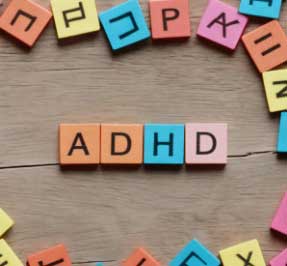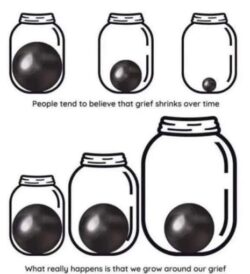 With every generation gap, there has been at least one hot button issue on which older adults and their younger counterparts don’t see eye to eye. In past generations, what constitutes friendship has come under fire over issues like whether or not it was ok to be friends with people who were in some way different, because of race, socioeconomic background, or religion. These days, the definition of friendship is being stretched and changed in new ways, namely, due to technological advances. Older generations have questions about these online relationships; the biggest one being, are virtual friendships real?
With every generation gap, there has been at least one hot button issue on which older adults and their younger counterparts don’t see eye to eye. In past generations, what constitutes friendship has come under fire over issues like whether or not it was ok to be friends with people who were in some way different, because of race, socioeconomic background, or religion. These days, the definition of friendship is being stretched and changed in new ways, namely, due to technological advances. Older generations have questions about these online relationships; the biggest one being, are virtual friendships real?
Ask anyone under thirty, and the answer to this question will almost always be yes. Friendships are no longer limited by geography. With social media platforms like Facebook, Instagram, Kik, Snapchat, Twitter, and Tumblr, along with face-time chatting on Skype, it’s possible to interact with people all over the world whenever you feel like logging on. A lot of young adults say they have formed deep and meaningful friends online, and in fact, sometimes feel closer to people they’ve met in this way than the friends they went to school with and live down the street. Most teenagers and younger adults have anywhere from a few to dozens of people they consider friends, yet have never met in person.
Their parents and grandparents, on the other hand, oftentimes don’t see the value in virtual friendships. They might feel strongly that you can’t really know someone you don’t spend time with in person on a regular basis. And what about all of those stories of people who create fake personas for themselves online and pretend to be an entirely different person than who they really are? Is the virtual generation living in a fantasy land that encourages the adult equivalent of having imaginary friends? Is it a complete waste of time that takes people away from “real” friendships? Most importantly, is it safe?
As with most things, there is truth on both sides of the issue, and a balanced approach is wise. When we’re willing to be open-minded and listen to other people’s perspectives, we can learn a lot, whether or not we agree.
Younger generations should be open to the concerns of their parents and elders. Safety is a real concern. There are, unfortunately, people who use online communications in nefarious ways. If you’re going to make friends with people you don’t know online, it’s in your best interest to be safe and smart about how and when you reveal information about yourself. It’s also good to keep an open mind about the value of making and keeping friends who live in your area. Online friendships can be rich and valuable, but they can’t replace the experience of a friend who comes over to bring you soup and give you a hug when a loved one dies, or taking a yoga class and going out to coffee together every Wednesday. If you’re foregoing those experiences in order to stay home to chat with people 2,500 miles away, you’ll miss out on a lot. Having a combination of virtual and local friends can give you the best of both worlds.
On the other hand, if you’re older, don’t dismiss virtual friendships out of hand. Ask younger people what they get from these relationships. You might be surprised by what they share. They may remind you that these friendships aren’t fake, because there is a real person on the other end, and many friendships that start online actually lead to meeting face to face, forging deep bonds and long-lasting relationships. As for safety concerns, keep in mind that while this is a real issue, dangerous people are everywhere, but most people aren’t dangerous. This is true online and in person. Most people who are stalked, beaten, or otherwise physically and emotionally harmed by others suffer these abuses from people they know well in real life.
Defining a good friendship is a matter of personal preference. What one person considers ideal might not work for another person at all. As long as everyone involved in the relationship is treated kindly, safe, and is able to continue leading a rich and well balanced life, why not celebrate friendship in all of its forms?
Devon is a Licensed Professional Clinical/Substance Abuse Counselor, Personal Life Coach, Certified Personal Trainer, and a nationally certified teacher. She is committed to helping young people be their highest selves in all areas: body, mind, and spirit. Her expertise, enthusiasm, energy and educational background serve to create a unique blend of services and techniques employed to help you reach your goals. For counseling sessions, coaching, or training, please contact her at 505.469.0779 or he***************@***il.com.



